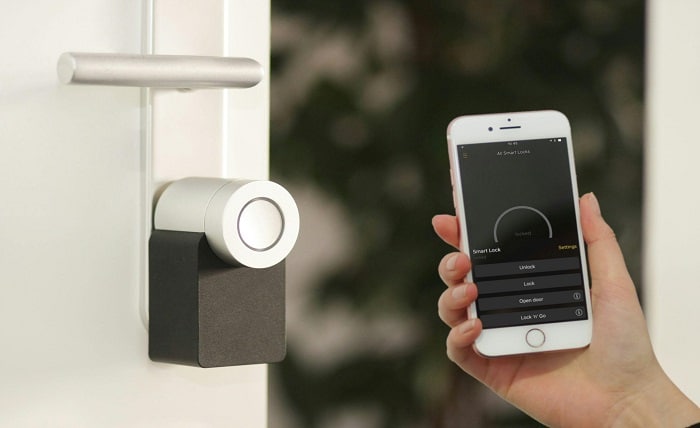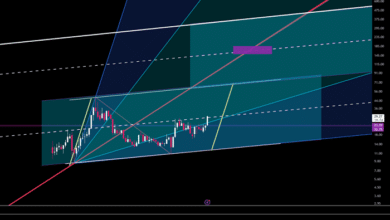The Future of Home Security: Emerging Technologies and Trends

Staying abreast of the latest technologies and trends when discussing home security is not a matter of keeping up with the Joneses; it is about safeguarding our most cherished sanctuary—our homes. We stand on the cusp of a new era in home security, marked by rapid technological advancements and innovative solutions. It is crucial to understand how these changes will shape the future of how we keep our homes safe.
The Current State of Home Security
Traditional home security systems have long relied on basic alarm systems to scare off would-be intruders. At the same time, physical barriers or shutters prevent burglars from gaining entry to your home in the first place. Today, we have wireless systems, smart alarms, and surveillance cameras that you can monitor via your smartphone. The industry is not resting on its laurels despite these advancements. Instead, it continually develops fresh ideas that intertwine safety and technology.
By adopting new home security technology, you can lock down your home tighter than the vault at a Las Vegas online sportsbook. Best of all, you do not need to be the most tech-savvy person to use these devices and technology because they are designed to be simple yet effective, so do not be put off by how advanced a system sounds.
Emerging Technologies in Home Security
There are four main areas in which groundbreaking home security technology is emerging: the Internet of Things (IoT), Biometrics, Artificial Intelligence (AI), and Machine Learning.
Internet of Things

The Internet of Things describes devices with sensors, processing ability, software, and other tech that connect and exchange data with other devices over the Internet. The popular Ring Doorbell is a shining example of the Internet of Things. It uses a camera and sensors to detect the presence of someone approaching your property before relaying video footage to your chosen device.
IoT devices can be paired to create a security ecosystem that works together. For example, it is possible to have a security camera detect movement outside, which triggers lights to turn on and asks smart locks to check if they are locked. Similarly, the system can automatically unlock doors if a smoke detector goes off, making for a quicker evacuation.
The beauty of IoT in home security is its flexibility and scalability. You can start with a few connected devices and expand as your needs increase and your budget allows.
Biometric Security
The use of biometrics, like facial recognition and fingerprint scanners, in home security is on the rise. These systems offer a high level of security by ensuring only recognized individuals can access your home. They also add a layer of convenience because you no longer need to worry about losing your keys or changing your locks.
Biometric devices are often paired with alarm systems for enhanced security. For example, they can trigger a silent or loud alarm if they detect a door being forced or someone the system does not recognize trying to gain entry to your property.
Artificial Intelligence and Machine Learning
Artificial Intelligence and machine learning were once something akin to science fiction, but both are becoming increasingly common in home security. These technologies enable systems not only to detect but also to predict and prevent security incidents. AI can, for example, analyze historical data to identify patterns that may indicate a potential break-in, such as unusual activity around a window or door at specific times.
Furthermore, AI-driven systems are increasingly adept at distinguishing between genuine threats and routine activities, reducing false alarms. Imagine a scenario where your dog wandering around the house or your yard does not trigger an alarm but is still sensitive enough to alert you if an unknown person is lurking.
Privacy and Ethical Concerns
Adopting advanced technologies raises significant ethical and privacy concerns. For instance, the use of biometrics involves collecting and processing highly sensitive personal data, which could be vulnerable to misuse or breaches. In addition, there is also the concern of over-surveillance and the potential for these technologies to be used for purposes other than security.
Home security companies and technology developers must prioritize protecting this data by implementing robust encryption methods so data is stored securely. Furthermore, they must be transparent about how that data is used and allow users to opt out of data collection where possible.
Many home security experts are calling for a framework of standardization and regulation for these new technologies. This would enable devices and systems to meet specific safety and privacy standards and ensure they are compatible with each other.
What’s Next In Home Security?
With how artificial intelligence, the Internet of Things, and biometrics are advancing, they are likely to play a more prominent role in home security in the future. We could see community-based security systems, where neighborhoods are interconnected through a network of smart devices, enabling a more collaborative approach to security. Such a system could trigger alerts or preventative measures at neighboring homes if there is an incident at one house.
Conclusion
The future of home security is undoubtedly exciting; it is filled with possibilities that were once pipedreams in science fiction movies. These emerging technologies will make our homes more intelligent, more connected, and more importantly, they will become safer.
Biometrics will become more widespread, offering a more personalized way to secure your home. At the same time, the Internet of Things will continue down its integration path, ensuring devices work in tandem to offer comprehensive protection.
However, the future is not without challenges, particularly around privacy and ethics. These advanced systems must protect our homes and our data, too. It is essential to navigate this new territory responsibly.
In conclusion, the future of home security is bright and packed full of potential. We are rapidly moving toward a world where our homes are not only places of comfort but also highly secure, where automated processes protect our privacy and belongings.



